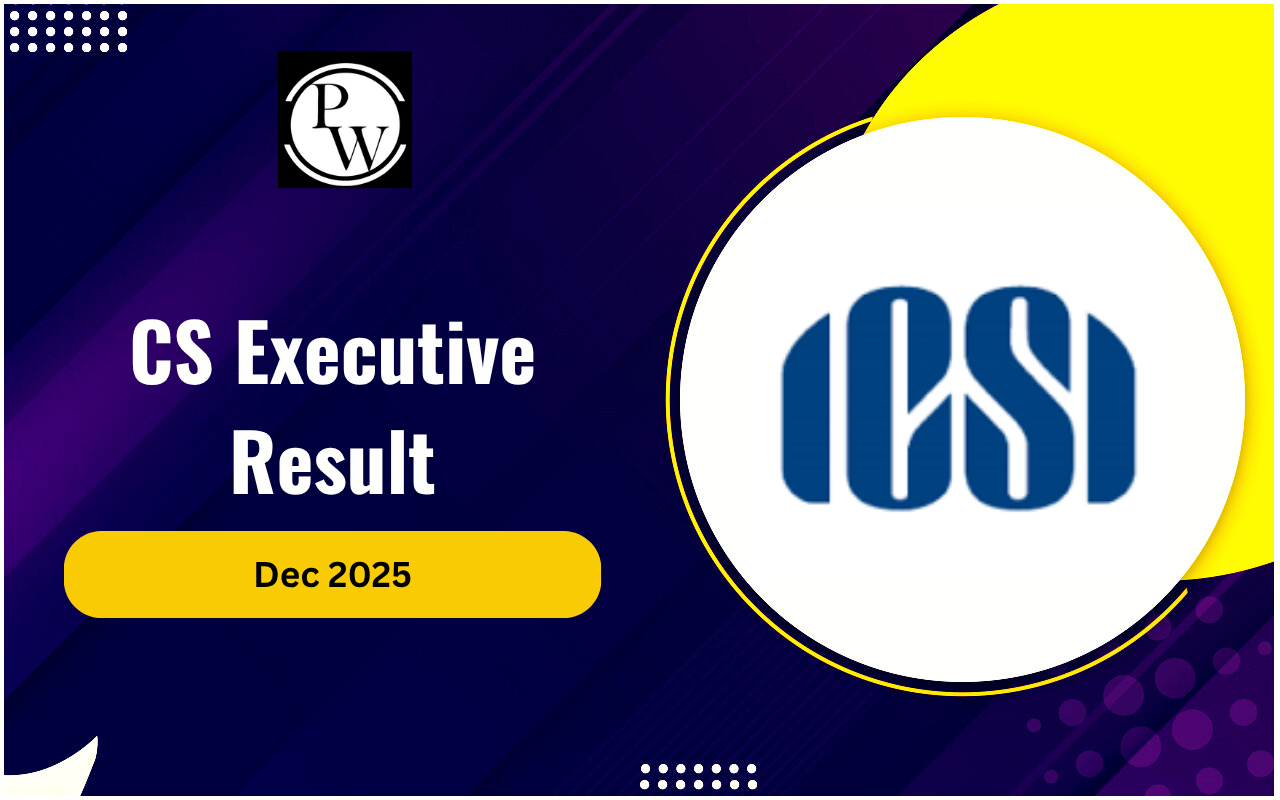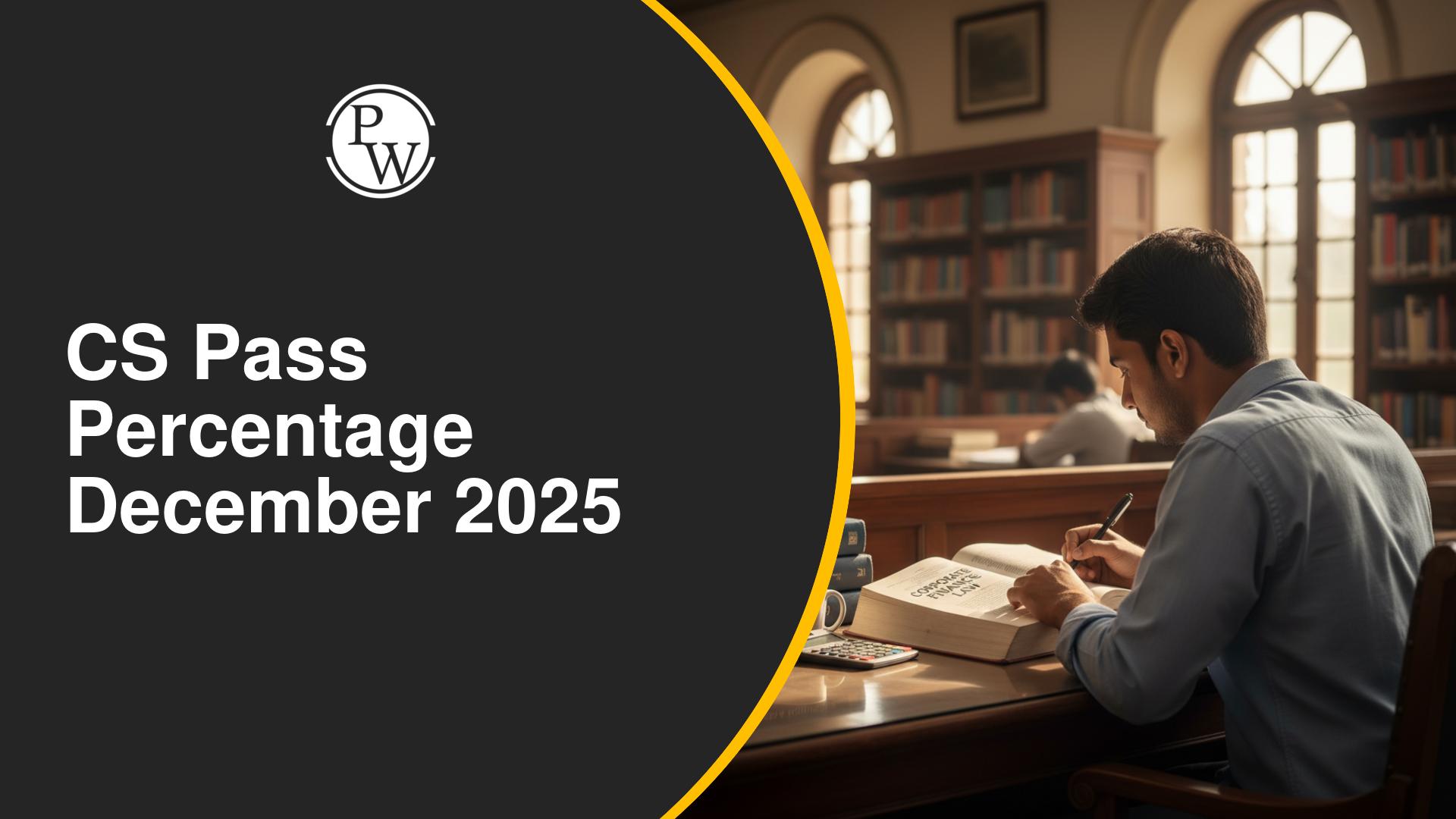
CS Executive Chapter-Wise Weightage: Preparing for the CS Executive exam requires a strategic approach, as each subject carries different weightage across chapters. Understanding the chapter-wise weightage helps aspirants prioritize important topics and optimize their study plan. This guide provides a detailed breakdown of subject-wise weightage based on the latest syllabus, ensuring that students focus on high-scoring areas.
Why Understanding CS Executive Chapter-Wise Weightage is Important?
Understanding the chapter-wise weightage in the CS Executive exam is crucial for effective preparation. It allows students to allocate their study time efficiently, ensuring they focus on high-scoring topics. Additionally, it provides clarity on the exam pattern and the importance of different subjects, helping aspirants to strategize their learning process effectively. By analyzing weightage, students can identify key areas that require extra attention, ultimately leading to better performance in the examination.?
Time Management: Prioritizing chapters with higher weightage can improve efficiency and reduce last-minute stress.
Strategic Study Plan: Focus on high-scoring topics to maximize marks while covering essential concepts.
Exam Readiness: Knowing weightage helps in identifying important areas and improving accuracy in the exam.
Boost Confidence: Studying topics with high probability of appearing in the exam ensures better performance.
CS Executive Module 1 Chapter-Wise Weightage
Understanding the chapter-wise weightage of CS Executive Module 1 helps candidates prioritize their preparation effectively. This module covers crucial subjects such as Jurisprudence, Company Law, Business Entities, and Tax Laws. By focusing on high-weightage chapters, aspirants can maximize their scores and enhance their understanding of key concepts.
1. Jurisprudence, Interpretation & General Laws
Sources of Law - 5 Marks
Constitution of India - 10 Marks
Interpretation of Statutes - 10 Marks
Law of Contracts - 10 Marks
Law of Torts & Consumer Protection Act - 10 Marks
Special Laws (including RERA, PMLA, etc.) - 15 Marks
General Clauses Act & Civil Procedure Code - 10 Marks
Criminal Procedure Code & Indian Penal Code - 10 Marks
RTI Act - 5 Marks
Limitation Act & Other Minor Laws - 15 Marks
2. Company Law
Introduction to Company Law - 5 Marks
Incorporation & Types of Companies - 10 Marks
Share Capital & Debentures - 10 Marks
Membership & Meetings - 10 Marks
Directors & Key Managerial Personnel - 10 Marks
Dividend, Accounts & Audit - 10 Marks
Winding Up & Miscellaneous Provisions - 10 Marks
Corporate Social Responsibility & Ethics - 5 Marks
Company Secretaries & Professional Ethics - 5 Marks
Case Laws & Recent Developments - 15 Marks
3. Setting Up of Business Entities & Closure
Choice of Business Entity - 10 Marks
Types of Business Structures - 10 Marks
LLP, Partnerships, and Other Forms - 10 Marks
Registration & Licensing - 10 Marks
Compliances & Business Laws - 10 Marks
Startups & Emerging Business Trends - 10 Marks
Winding Up & Closure - 15 Marks
Insolvency & Bankruptcy Code - 25 Marks
4. Tax Laws
Basic Concepts of Income Tax - 10 Marks
Computation of Income & Deductions - 15 Marks
Heads of Income - 20 Marks
Tax Planning & Management - 10 Marks
GST & Indirect Taxes - 15 Marks
Customs & Other Indirect Taxes - 15 Marks
Recent Amendments & Case Studies - 15 Marks
CS Executive Module 2 Chapter-Wise Weightage
Understanding the chapter-wise weightage for CS Executive Module 2 is crucial for effective preparation. This module focuses on key subjects like Corporate & Management Accounting, Securities Laws, Economic Laws, and Financial & Strategic Management. By analyzing weightage distribution, candidates can prioritize important topics and enhance their exam performance.
5. Corporate & Management Accounting
Accounting Principles & Standards - 10 Marks
Financial Statements & Analysis - 15 Marks
Corporate Restructuring Accounting - 15 Marks
Cost Accounting & Management Accounting - 20 Marks
Budgeting & Financial Control - 10 Marks
Investment & Financial Decision Making - 15 Marks
Recent Developments in Accounting - 10 Marks
Case Studies - 5 Marks
6. Securities Laws & Capital Markets
Introduction to Securities Laws - 10 Marks
Regulatory Framework (SEBI Act, SCRA, etc.) - 20 Marks
Capital Markets & Stock Exchanges - 15 Marks
Issue of Securities & Listing Process - 15 Marks
Takeover Code & Insider Trading Regulations - 10 Marks
Mutual Funds & Collective Investment Schemes - 10 Marks
Recent Trends & Regulatory Updates - 10 Marks
Case Studies & Practical Aspects - 10 Marks
7. Economic, Business & Commercial Laws
Competition Act & Foreign Exchange Management Act - 15 Marks
Consumer Protection & Essential Goods Laws - 10 Marks
Labour Laws & Industrial Disputes - 15 Marks
Environmental Laws & Sustainability - 10 Marks
Negotiable Instruments & Banking Laws - 15 Marks
Intellectual Property Rights & Cyber Laws - 15 Marks
Recent Amendments & Case Studies - 20 Marks
8. Financial & Strategic Management
Financial Management Basics - 10 Marks
Working Capital & Capital Budgeting - 15 Marks
Cost of Capital & Capital Structure - 15 Marks
Risk Management & Derivatives - 10 Marks
Strategic Management & Business Policy - 15 Marks
Mergers, Acquisitions & Corporate Strategy - 15 Marks
Case Studies & Practical Scenarios - 20 Marks
Strategies to Crack CS Executive Exam
Cracking the CS Executive exam requires a strategic and disciplined approach. Candidates should prioritize high-weightage topics, practice consistently, and stay updated with the latest amendments. Time management and efficient study techniques play a crucial role in achieving success in this competitive examination.
Prioritize High-Weightage Chapters: Focus more on topics carrying 15-20% weightage.
Create a Study Schedule: Allocate more time to challenging subjects and revision.
Practice Mock Tests & Previous Year Papers: Enhance problem-solving speed and accuracy.
Revise Regularly: Consistent revision helps in better retention of concepts.
Refer to ICSI Study Material & Case Laws: Authentic resources help in understanding exam patterns better.
Stay Updated with Amendments: Legal and tax laws frequently change; ensure you're studying updated content.
A structured approach towards CS Executive preparation with an emphasis on chapter-wise weightage helps in maximizing scores. By focusing on high-weightage topics, practicing consistently, and staying updated with the latest exam patterns, aspirants can effectively clear the exam with confidence.
Join PW CS Online Courses and build a strong foundation in corporate laws and governance with structured learning and dedicated support.
CS Executive Chapter-Wise Weightage FAQ
How can understanding the weightage of CS Executive subjects help in preparation?
Which paper carries the highest weightage in the CS Executive exam?
Are case studies important in CS Executive exams?










